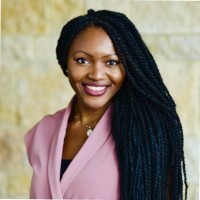Fuqua students, faculty and staff have navigated the new virtual world resulting from the COVID-19 pandemic.
Various committees, groups and individuals have found ways to not only stay connected to each other, but to help those adapting to new ways of working and learning. While the happy hours have now gone virtual, the Fuqua spirit of selflessness and support continues unchanged.
Here are a few examples.
Staff Volunteers Keep Community Connected
Assistant Director of Human Resources Cathy Santos has witnessed a transformation of workplace norms brought on by the COVID-19 pandemic. But she remains impressed with how Fuqua has sustained a community feel, even with the buildings and classrooms empty and everyone working remotely.
The Virtual Employee Engagement Team or VEET was created to help keep the community connected virtually. Santos is one of 21 staff members, spanning numerous departments, tasked with scheduling virtual and online events to keep staff and faculty engaged.
“This might be a tall order if it were any place other than Fuqua, but we already enjoy high morale and the various divisions and teams are showing they can work remotely and remain united,” said Santos.
The group has hosted virtual events ranging from topics on how to manage stress to cake baking and decorating tips.
“The loss of daily, in-person interaction can definitely have an impact if left unchecked,” said fellow VEET member and Global Marketing production coordinator, Terri Duke. “The VEET events remain bright spots in these difficult times.”
“I have received many notes and emails from people thanking us for doing this,’” said Santos. “We will continue these events until things return to normal and we head back to campus.”
Fuqua Students Become Virtual Teachers
Hans Jogoo, a student in the Master of Quantitative Management program, is as an organizer and volunteer in a free tutoring program offered to friends and families of the business school.

Jogoo is one of a team of students offering virtual tutoring and other support to help Fuqua’s staff and faculty who are working remotely. “I love Fuqua’s community response,” said Jogoo.
Through Zoom, FaceTime and other video chatting services, the volunteers advise on everything from geography, history, German, even strategies for how to be a more skillful Dungeons and Dragons player.
“We realize this is a very challenging time, so we want to be there in any way we can,” said Jogoo. The volunteers can virtually read stories to small children but are also happy to video chat with someone in their 90’s.
Senior program director for The Center for the Advancement of Social Entrepreneurship (CASE), Kimberly Bardy Langsam, utilizes the support of two volunteers.
Once a week, her two children, Leo, 7 and Maya, 5, create art projects with Rachel Shapiro, a second-year Daytime MBA student. On Fridays, Leo and Maya connect with Juliana Collamer, also a second-year Daytime MBA student, over Zoom. They work on reading comprehension skills by studying The Mouse and the Motorcycle by Beverly Cleary.
“Not being able to provide all of the learning opportunities of their school can create some stress and guilt, but with the efforts and talents of Rachel and Juliana, my kids are now creating dragons and sock puppets. Their help is a relief and a huge benefit to me,” said Langsam. “I would love to keep the relationships going for as long as possible.”
Jogoo points out these extraordinary times have brought out the best in people. “Ultimately, doing good allows you to display some sort of control, in a climate where we are all perhaps adjusting to a lack of control,” said Jogoo.
Virtual Fuqua Fridays
Students are finding many ways to stay connected virtually to maintain the closeness of the Fuqua community.

Fuqua Fridays are among the events happening first virtually. Michael Caracappa, Alison Mattox and Nwaka Isamah, first-year Daytime MBA students, are leading the effort to keep Fuqua thriving through weekly appointments and online gatherings.
“Since COVID-19 hit, our class has remained social and collaborative,” said Isamah.

Caracappa confirms this, even with some students choosing to return to their hometowns. “The crisis has brought out the best in a lot of people. If anything, the pandemic has brought our class closer together.”
The new Fuqua Fridays involve quarantine, “Qook-offs,” presented by the Culinary Club or, “Taste & Isolate:” A Virtual Wine Tasting, presented by the Fuqua Wine Club.
There have also been trivia games and a “Love is blind” event, where participants disguise their identities while getting to know another member of the class before revealing themselves at the end.
“We have a rotating cycle of professors who begin a collective toast for all those participating. From there, we have activities and we break out in small groups for discussions. It’s always interesting to see the virtual backgrounds that people choose. It’s great entertainment!” said Isamah.
Not all fun and games, there have been discussions and forums on more serious topics; gender identity, mental wellness and privilege, just to name a few. For Inclusion Week, Terri Cooper, Deloitte’s Chief Inclusion Officer, led a forum on, “Inclusive Leadership.”
“I have a ton of respect for my classmates and what we have been able to achieve,” said Isamah.
